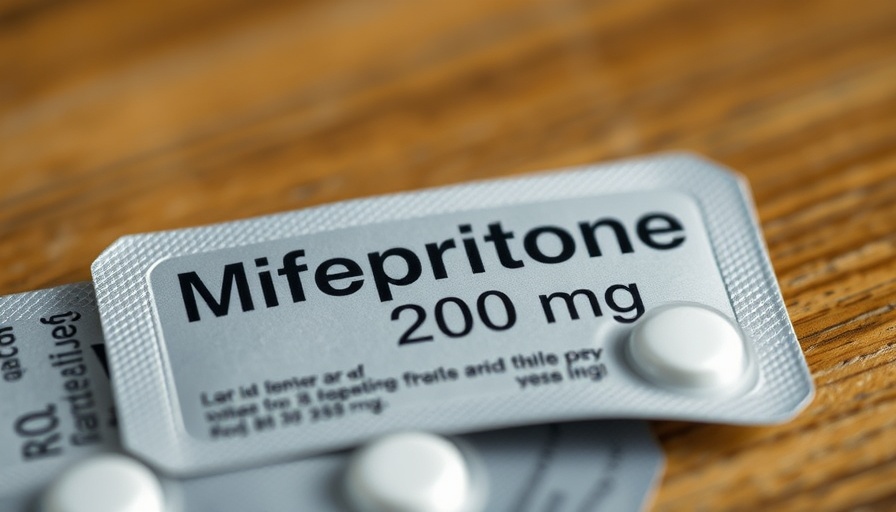
Louisiana's Controversial Abortion Pill Law Sparks Legal Challenge
In a significant legal battle, a state judge is set to hear arguments regarding Louisiana's unprecedented law that categorizes abortion-inducing medications, misoprostol and mifepristone, as "controlled dangerous substances." This action raises alarm among medical practitioners and advocates who argue that the reclassification could jeopardize timely access to crucial healthcare during medical emergencies.
Understanding the Legislation: A Threat to Reproductive Health?
The law's supporters claim that it is designed to protect against coerced abortions and prevent misuse of the medications. However, healthcare professionals warn that the additional burdens associated with this classification could hinder access to necessary treatments for patients experiencing obstetrical emergencies. The ongoing legal challenge seeks to permanently halt the enforcement of the law, citing concerns over potential delays in obtaining life-saving care.
The Importance of Accessibility in Medical Emergencies
Before the implementation of this law, mifepristone and misoprostol were accessible through prescriptions, but they were also kept readily available in hospitals, often in a "hemorrhage box" to address emergencies quickly. With the reclassification, healthcare providers fear that the stringent storage regulations and additional bureaucratic requirements will severely impair their ability to respond effectively in emergency situations.
Examining Real-World Implications
The reclassification of these pills as Schedule IV drugs, placing them alongside controlled substances like tramadol, has raised eyebrows. Critics highlight the fact that the number of cases of unauthorized use of these medications cited by the law's proponents is alarmingly low. Many medical experts stress that the existing safeguards and protocols already in place effectively maintain safety without further restricting access.
Public Reaction and the Political Climate
Louisiana is known for its stringent legislation concerning abortion, and this law is a reflection of broader conservative efforts nationwide to regulate access to abortion medications. The political landscape following last year's Supreme Court verdict on Roe v. Wade has spurred states to adopt more aggressive stances against abortion access, prompting concerns about women's rights and reproductive health care autonomy.
What’s Next for Louisiana’s Abortion Pill Law?
As the legal proceedings unfold, the implications reach beyond Louisiana. This case will undoubtedly serve as a bellwether for similar legislative actions in other states, possibly influencing the dialogue on reproductive rights and health care access nationally. Advocates warn that, if successful, this law may inspire further restrictive measures that could jeopardize not just abortion pills, but broader health care access for vulnerable populations.
Step Forward: Understanding Your Rights and Healthcare Access
For those in Davenport and Central Florida, staying informed about such legislative changes is crucial. The repercussions of laws like Louisiana's can impact healthcare frameworks across the country, demonstrating the need for organizations and individuals to be vigilant in advocating for access to crucial reproductive and medical services. Knowing your rights and accessing reliable health care resources can empower communities to flourish—even amid legal uncertainties.
Join the Conversation: What Do You Think?
It is essential for community members to engage in discussions surrounding these critical issues. What do you think about this law? How should local and state policymakers address healthcare access amidst changing regulations? Your voice matters in shaping the future of healthcare in our communities.
If you are concerned about reproductive healthcare access or want to learn more about your rights and options, stay tuned for updates, and engage with local advocacy groups focused on protecting your health rights.
 Add Row
Add Row  Add
Add 






Write A Comment